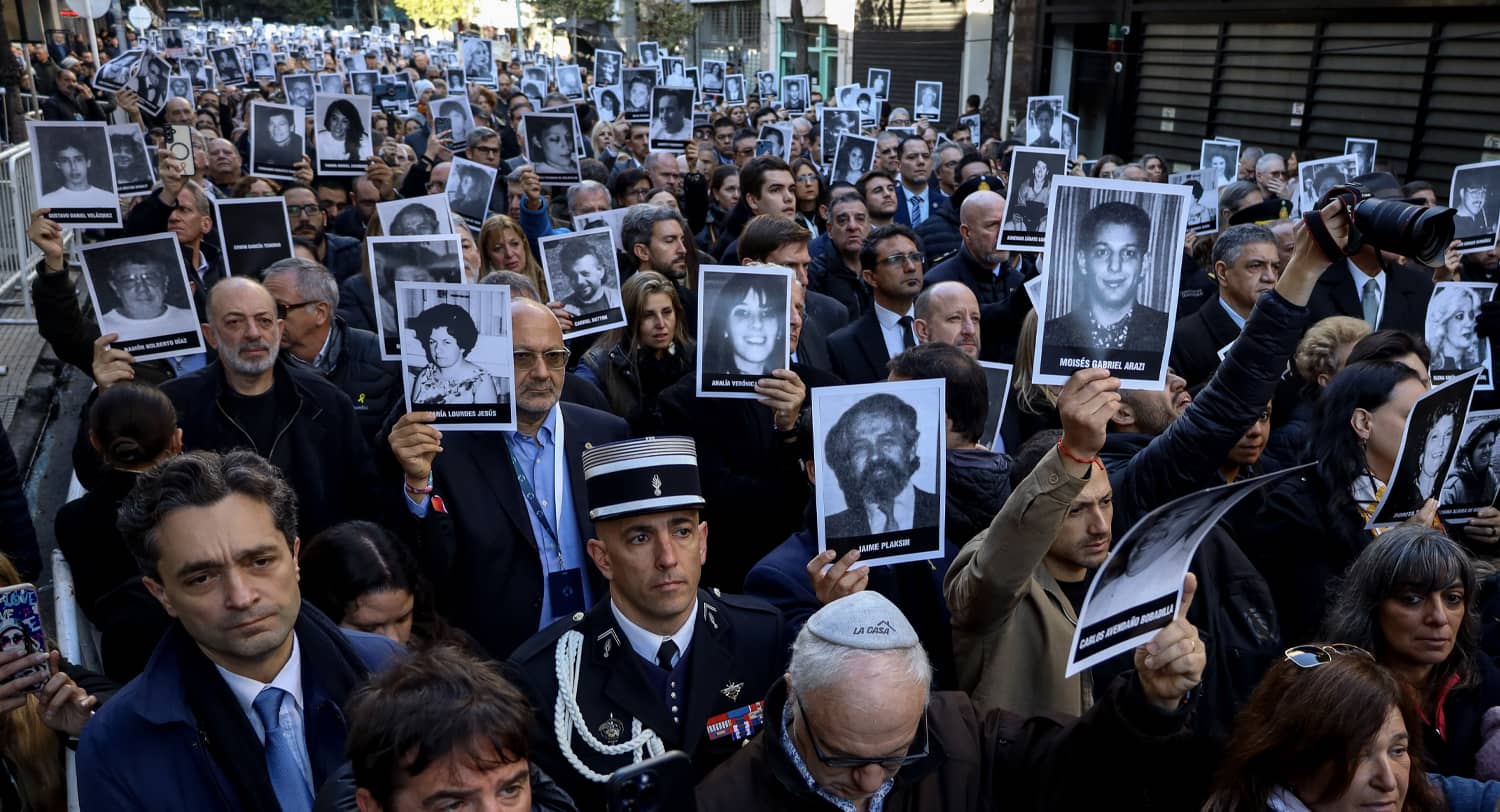On July 18, 1994, a car bomb exploded in front of the Buenos Aires Jewish community center (known as AMIA) leaving 85 persons dead and over 300 wounded. Until the October 7 Hamas attack, this was the largest terrorist killing of Jews since the Holocaust.
On the 30th anniversary of this attack, the Tehran Times, the English-language voice of Iran’s regime, published an article denouncing Argentinian efforts to reopen the case over its Iranian links. The Tehran Times article suggested that the attack may have been “‘self-harm’ of the Jews” and asserted that the government of Argentine President Javier Milei was “on the path of the Zionist regime’s anti-Iranian scenario” and was its “puppet.”
Ominously, the article concluded by saying: “Undoubtedly, Tehran will not forget the anti-Iranian policies of Buenos Aires. But Iran has shown that it does not easily play on the enemy’s chess board, but at the right time and right position, it will impose its own game on the enemy and make them regret their enmity with Iran.”
This veiled threat went largely unreported outside of Argentina. But it demonstrates Iran’s extreme sensitivity towards the publicity that the anniversary of the attack has provoked, including President Milei’s announcement of his intention to seek legislation allowing suspects to be tried in absentia. Tehran must find recent legal developments in the case to be particularly unwelcome.
Efforts to unravel the AMIA bombing have produced enough tales of international intrigue to fill a bookshelf of spy novels. The initial investigation was botched from the beginning with multiple police, judicial and intelligence officials converging on the inadequately secured site. Investigating judge Juan Jose Galeano, once seen as a fearless truth-seeker, was later found to have colluded with the head of Argentina’s intelligence service to pay an individual 400,000 US dollars for testimony, in order to create a false trail which led away from Iranian involvement.
Alberto Nisman, an aggressive prosecutor in charge of the case from 2004 onward, found Iran to be responsible, with Lebanon-based Hizbullah (which has links to the Shia Muslim community in nearby Paraguay) actually carrying out the attack. He sought in vain the return of several Lebanese and Iranian individuals who had been present in Argentina at the time of the attack, some of whom ultimately ended up in senior positions in the Iranian government.
The then-government of President Cristina Fernández de Kirchner negotiated a “memorandum of understanding” between Argentina and Iran calling for a commission of legal experts to interview these individuals in Iran. This was seen by many in Argentina and elsewhere as essentially an effort to put an end to any serious investigation of Iranian involvement.
Nisman himself went as far as accusing Fernández de Kirchner of obstructing justice with this accord, pressing for further investigation of her role. The case against her was initially dismissed in Argentina’s courts, but has recently been revived on appeal. Nisman himself died of a gunshot wound in 2015, allegedly self-inflicted, although the investigation into his death was marked by the same confusion and lack of professionalism as the one into the initial attack.
Nonetheless, the AMIA case remains alive. Argentina’s highest criminal court has explicitly determined that Iran and Hizbullah were in fact responsible. The US Department of Justice has filed terrorism charges against a fugitive Hizbullah operative who allegedly carried out the attack. And Argentina is asking Brazil to try a Brazilian citizen of Lebanese origin, also sought for his involvement.
One must ask what exactly Iran plans to do, as the Tehran Times suggests, “at the right time and position.” Right now Iranian-backed forces are active in Gaza, on the Israel-Lebanon border, in Syria and Iraq, and on the Red Sea off of Yemen. Argentina (and other governments which it views as hostile, including the United States) would be well advised to take seriously this threat language.

